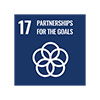Human rights
Glencore respects the dignity and human rights of our workforce, business partners- including our direct and indirect suppliers- and the societies in which we live and work. We do this in line with the United Nations Guiding Principles on Business and Human Rights (UNGPs).
We aim to:
- make a positive contribution to the advancement of human rights of all people, including vulnerable groups;
- avoid causing, or contributing to adverse human rights impacts;
- prevent or mitigate adverse human rights impacts linked to our operations, products, or services through our business relationships. In the event that we cause or contribute to an adverse impact on human rights, we provide for, or cooperate in, processes to enable an appropriate remedy.
Our approach
Glencore’s approach to human rights is based on increasing awareness, building capacity, and promoting stakeholder dialogue. We aim to build strong and trusting relationships, with special attention to the rights of vulnerable groups.
Our Human Rights Policy articulates our approach to human rights in accordance with the UNGPs and sets out how we fulfil our commitment to respect human rights within our operations. The policy was developed in consultation with communities and external experts. It also aligns with the International Council on Mining and Minerals’ Mining Principles and the UN Sustainable Development Goals.
Glencore’s Responsible Sourcing Policy and Supplier Code of Conduct provide a framework for us to assess, address, mitigate and, as a last resort, disengage where we identify human rights-related risks within our supply chains.
Our Board of Directors, through its Health, Safety, Environment and Communities Committee, oversees our human rights activities which are embedded across the business.
Identifying our salient human rights risks
Salient human rights are those human rights most at risk of severe negative impact from our operations and business activities. The saliency assessment is conducted by combining the severity of the impact and the likelihood that this impact may occur.
Understanding which risks are considered ‘salient’ allows us to focus our efforts and resources and to proactively prevent, mitigate, and account for how we manage potential impacts.
In 2024, we initiated a comprehensive review and update of our salient human right risks.
This process incorporated data and the perspectives of selected rightsholders to help identify priority areas for human rights in our industrial assets and supply chains. It also engaged a diverse representation of external stakeholders by nature and geography.
Our updated salient human rights risks and their sub-issues are:
Water pollution and stress, air quality, biodiversity, climate change, responsible mine closure
Consultation with Indigenous communities (free, prior and informed consent (FPIC)), negative impacts to cultural heritage, Indigenous community resettlement, discrimination against Indigenous Peoples
Child and forced labour, occupational health & safety, decent working time, decent wages, freedom of association and collective bargaining, working conditions, discrimination in the workplace
Local health conditions, tailings storage facility failure, transportation impacts, water, sanitation and hygiene (WASH), women and girls’ rights
Host community resettlement, livelihood disruption, livelihood restoration post-resettlement
Illegal intrusions, conduct of security forces and Human Rights Defenders
Sourcing from artisanal and small-scale miners, financing conflicts, corruption in our supply chains
Embedding and managing respect for human rights across our business
Our policies, standards, and procedures outline and support our commitment to respecting human rights and implementing human rights due diligence processes in our operations and supply chain.
How do we manage human rights in our operations?
Our industrial assets are required to carry out human rights due diligence and assess their potential human rights risks.
|
Human rights rating tool |
||
| Industrial assets with a ‘High’ rating must conduct a human rights impact assessment (HRIA) using external expertise. The HRIA must, amongst other factors, assess with rightsholders the nature and severity of the risks and/or impacts the industrial asset is likely to have on them, identify controls to manage the identified risks and/or impacts, and communicate a summary of the key outcomes to relevant stakeholders. | Industrial assets with a ‘Medium’ or ‘Low’ risk rating must conduct a human rights risk assessment (HRRA) to help understand and quantify human rights risks. The HRRA must, amongst other factors, communicate a summary of the key outcomes to relevant stakeholders. | |
This tool supports our approach to human rights due diligence.
We implement training and awareness programmes to build capacity within our workforce, promoting human rights awareness, competencies and leadership. Our industrial assets are required to conduct regular human rights training for their workforce with a focus on workers in positions exposed to human rights concerns, such as security. This includes human rights awareness during day-to-day activities for our wider workforce, as well as focused training on the Voluntary Principles on Security and Human Rights for our security employees and contractors.
We consider access to remedies to be core to the way we manage and respect human rights.
Our industrial assets are required to implement a local complaints and grievances mechanism, in alignment with the UNGP effectiveness criteria, meaning they are designed to be legitimate, accessible, predictable, equitable, transparent, rights-compatible, a source of continuous learning, and based on engagement and dialogue.
These mechanisms provide accessible communication channels for local stakeholders, including Indigenous communities, allowing complaints and grievances to be submitted anonymously, without fear of retaliation. It is designed to address complaints, or grievances on both actual and perceived issues raised by any stakeholder who may be affected by the activities or presence of our operations. We commit to investigating all concerns in a manner that respects the rights of the complainant.
If, despite our best efforts, a human rights incident occurs, we investigate to understand causes and contributing factors and implement remedial actions to prevent recurrence.
We require our industrial assets to provide a remedy where Glencore caused or contributed to human rights harm and promptly take corrective actions to avoid similar incidents in the future.
We conduct regular reviews of the alignment of our local complaints and grievances mechanisms with the UNGP effectiveness criteria. We also monitor and track complaints and grievances trends, assess incidents and investigation outcomes, and share lessons learned with appropriate stakeholders.
We respect the dignity and human rights of our workforce, including the right to a safe workplace and the rights to freedom of association and collective bargaining.
We promote fair recruitment and employment practices so that all work is voluntary and fairly compensated. We respect and value every employee and create a fair, supportive and inclusive working environment where people with diverse experiences and perspectives can develop and fulfil their potential.
We prohibit unlawful discrimination on any basis and do not tolerate any form of harassment or behaviour that is offensive, abusive or demeaning.
Read more about our approach on Our people.
Our business faces complex security challenges which are a function of geopolitics, industrial asset locations and the evolution of emerging threats.
For our industrial assets, maintaining security is essential to providing a safe working environment and managing our relationship with local communities.
We are a member of the Voluntary Principles Initiative and support, implement and promote the Voluntary Principles on Security and Human Rights (VPSHRs). We are committed to working alongside our local communities and stakeholders in a way that protects the security of our workforce and the communities that interact with our industrial assets.
We require our security employees and private security contractors to be trained on the VPSHRs. With public security, we make clear our own commitments and our expectations for others to respect human rights and, where feasible, we document these expectations in a manner consistent with the VPSHRs.
Our Group Internal Audit and Assurance function undertakes compliance reviews against our Security and Human Rights Standards for a rolling sample of high and medium risk industrial assets. We report annually on our implementation of the VPSHRs.
Our business interacts with many diverse communities around the world. We respect the rights, interests, perspectives and aspirations of Indigenous Peoples and acknowledge their right to maintain their culture, identity, traditions and customs.
Read more on our Indigenous Peoples page.
How do we manage human rights in our supply chain?
Glencore’s Responsible Sourcing Policy and Supplier Code of Conduct set out our commitment to take into account social, ethical and environmental considerations when managing our relationships with suppliers through our supply chain and procurement strategies. We are committed to purchasing products and services from suppliers who operate in a manner that is responsible, transparent and respects the human rights of all.
In our Supplier Code of Conduct, we lay out our requirements and expectations for suppliers on a range of topics, including treating people with fairness and respect, operating safely and responsibly and acting with integrity.
We set out our approach to responsible sourcing and addressing human-rights related risks in our supply chains at Responsible Sourcing.
We do not tolerate child labour, any form of forced, compulsory or bonded labour, human trafficking or any other form of slavery and actively seek to identify and eliminate them from our supply chain.
We publish an annual Modern Slavery Statement that sets out our approach and the steps we take to prevent modern slavery in our organisation and supply chain.
Case studies
External commitments
We are committed to implementing the UNGPs. We uphold the UN Declaration of Human Rights and the International Labour Organization (ILO) Declaration on Fundamental Principles and Rights at Work.
We support the UN Global Compact and follow the principles set out in Organisation for Economic Co-operation and Development (OECD) Guidelines for Multinational Enterprises and OECD Due Diligence Guidance for Responsible Supply Chains of Minerals from Conflict-Affected and High-Risk Areas.
We operate in accordance with the VPSHRs, International Finance Corporation’s Standard 5 and ICMM’s Position Statement on Indigenous Peoples and Mining.
We articulate these commitments in our Code of Conduct and Group policies, including our Group Human Rights Policy and Social Performance Policy.
Principles we follow
-
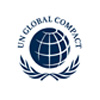 UN Global CompactVisit the website
UN Global CompactVisit the website -
 Principle 1Read more
Principle 1Read morebusinesses should support and respect the protection of internationally proclaimed human rights
-

-
ICMMVisit the website
-

-
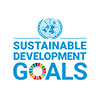 UN SD GoalsVisit the website
UN SD GoalsVisit the website -
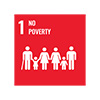
-
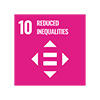
-

-
